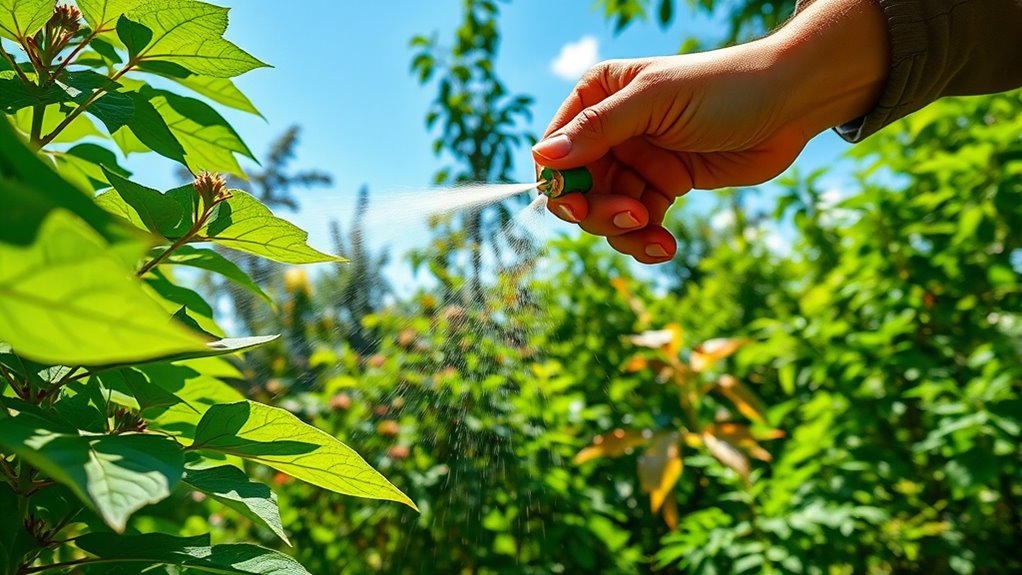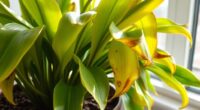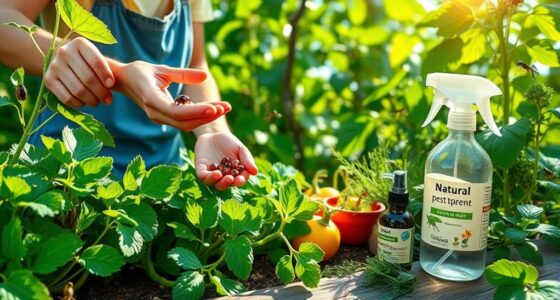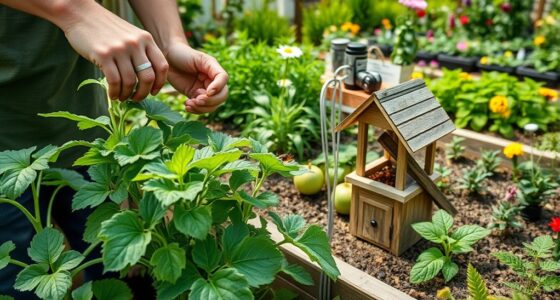To use neem oil safely on your plants, always dilute it according to the manufacturer’s instructions, and apply during cooler parts of the day like early morning or late afternoon to prevent leaf damage. Be sure to spray both sides of the leaves for thorough coverage and avoid high temperatures or direct sunlight during application. Repeating the process every 7-14 days enhances pest control and plant health. Keep these tips in mind to protect your plants and discover more effective methods.
Key Takeaways
- Dilute neem oil according to manufacturer instructions before application.
- Spray evenly on both tops and undersides of leaves for effective pest coverage.
- Apply during cooler parts of the day, like morning or late afternoon, to prevent leaf burn.
- Repeat treatments every 7 to 14 days, especially during peak pest activity.
- Test a small area first and avoid application during extreme heat or direct sunlight.
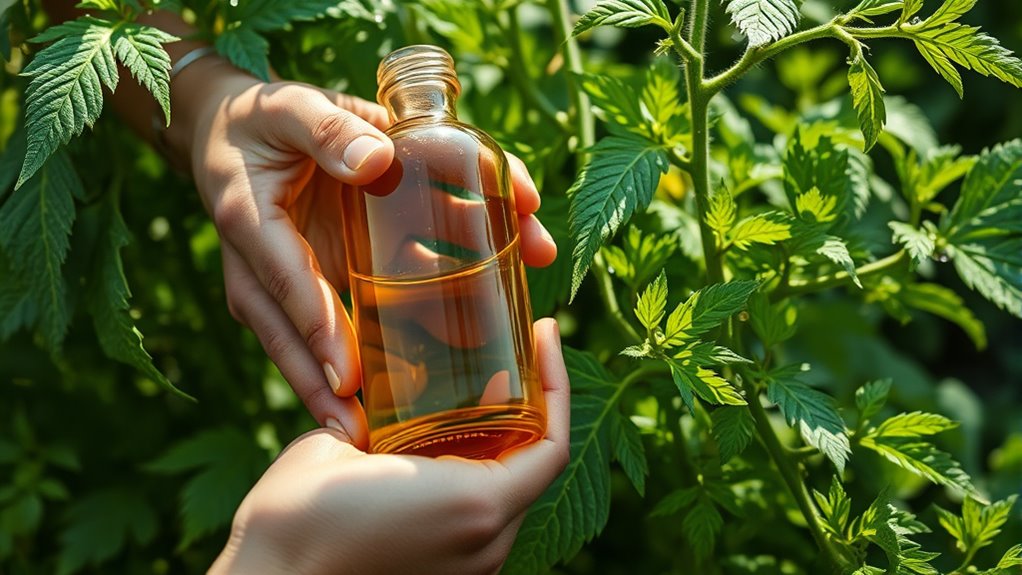
Have you ever wondered why neem oil is gaining popularity among gardeners and eco-conscious consumers? The answer lies in its impressive botanical benefits and versatile application techniques. Neem oil is derived from the seeds of the neem tree, which has been used for centuries in traditional agriculture and medicine. Its natural properties make it an effective, environmentally friendly option for pest control and plant health. When you understand its botanical benefits, you’ll see why so many are turning to neem oil as a sustainable solution for their gardening needs.
Neem oil works by disrupting the life cycle of pests, including insects like aphids, whiteflies, and spider mites. It contains compounds such as azadirachtin, which interfere with feeding, reproduction, and growth in pests, effectively reducing infestations without harming beneficial insects or pollinators. This makes it a safe choice for organic gardening and for those wanting to minimize chemical exposure. Its antifungal properties also help combat common plant diseases like powdery mildew and rust, promoting healthier, more resilient plants.
Applying neem oil correctly is vital to maximizing its benefits and guaranteeing your plants remain healthy. Start by always diluting the oil according to the manufacturer’s instructions. Using a spray bottle or a garden sprayer, evenly coat both the tops and undersides of leaves, where pests often hide. Morning or late afternoon application is ideal to prevent leaf burn and allow the oil to dry thoroughly. Repeat applications every 7 to 14 days as needed, especially during peak pest activity or when new growth appears. Always test a small area first to check for any adverse reactions, particularly if you’re dealing with sensitive plants.
When using neem oil, applying it with care ensures you make the most of its botanical benefits while avoiding potential damage. Proper application techniques involve thorough coverage and timing, which help pests ingest the oil and disrupt their development effectively. Additionally, avoid applying neem oil during high temperatures or direct sunlight, as this can cause leaf damage. Maintaining a regular schedule and observing your plants closely will help you determine the right frequency of applications. Using proper application methods also helps prevent issues like leaf burn and ensures the oil remains effective.
Frequently Asked Questions
Can Neem Oil Be Used on Edible Plants Safely?
You can use neem oil on edible plants, but you should be cautious about neem oil toxicity. It’s generally safe when used correctly, but excessive application may leave residues that could affect edible plant safety. Always follow the instructions carefully, apply neem oil during the right times of day, and wash your produce thoroughly before consuming. This guarantees you enjoy the benefits without compromising your plants’ safety or your health.
How Often Should I Apply Neem Oil to My Plants?
You should apply neem oil to your plants at ideal intervals, typically once every 7 to 14 days. This application frequency helps prevent pests without overdoing it. Keep an eye on your plants and adjust the interval if you notice any stress or adverse reactions. Regular monitoring ensures you maintain healthy, pest-free plants while avoiding potential oil buildup or damage.
Does Neem Oil Harm Beneficial Insects?
They say “a little caution goes a long way,” and that’s true with neem oil. While neem oil effects are generally safe for beneficial insect safety when used correctly, it can harm some pollinators and predators if applied excessively or during peak activity hours. To protect beneficial insects, apply neem oil early in the morning or late at night, and follow label instructions carefully. This way, you nurture your plants without disrupting the ecosystem.
Can Neem Oil Be Mixed With Other Pesticides?
You can blend neem oil with other pesticides, but you should verify pesticide compatibility first. Always follow mixing guidelines to avoid adverse effects on your plants or beneficial insects. Testing a small amount before full application helps ensure compatibility. Keep in mind that some pesticides may reduce neem oil’s effectiveness or cause phytotoxicity. When in doubt, consult product labels or contact the manufacturer for specific mixing instructions.
What Are Signs of Neem Oil Over-Application?
Did you know over-application of neem oil can harm your plants? Signs include leaf yellowing, wilting, or unexpected spotting. You should watch for these indicators if your application exceeds recommended concentration thresholds or if you spray too often. To avoid damage, stick to the proper concentration and limit application frequency. This helps protect your plants while still benefiting from neem oil’s natural pest control properties.
Conclusion
Using neem oil is a safe and effective way to protect your plants naturally. Just remember to follow the directions carefully to avoid any harm. Did you know that neem oil can control up to 200 pest species? That’s like having a versatile pesticide in your garden toolbox. By using it responsibly, you can keep your plants healthy and thriving without risking your garden’s balance. So, give neem oil a try and enjoy a pest-free, lush garden!
